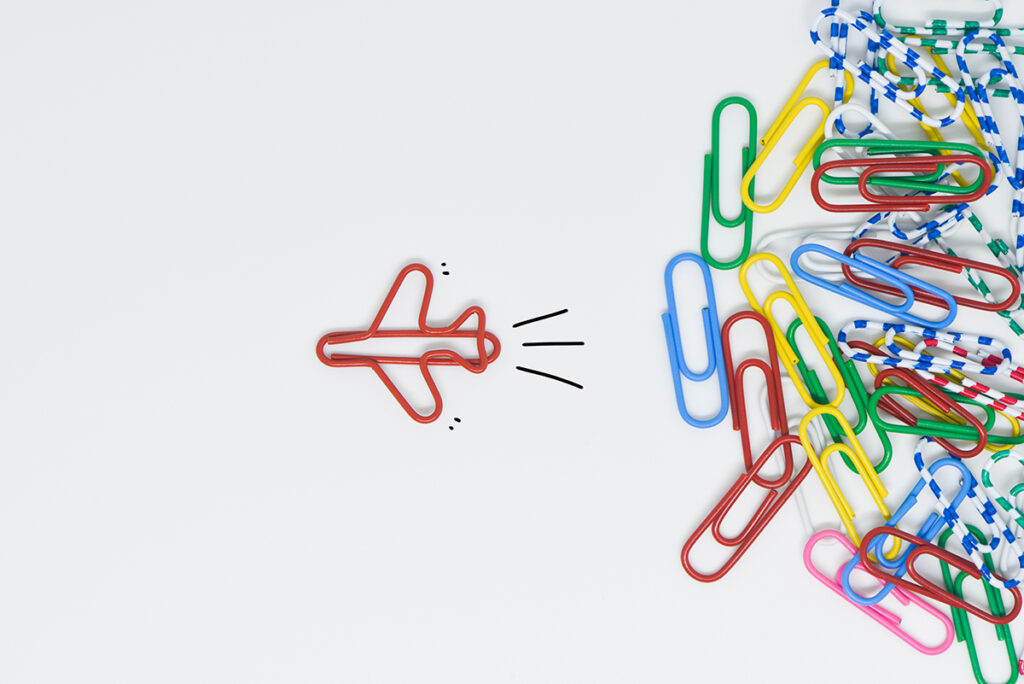What’s changed?
COVID-19 has been a terrible presence for the last year in all of our lives but I like to think that its legacy has not been all negative. For one thing, the pandemic has provided us with an opportunity to enhance our relationships with our colleagues and as a result, in some instances, it’s brought us closer with those we work with.
Whether it comes naturally or not, the circumstances we’ve lived and worked in over the last year or so has meant that many line managers have been forced to display more empathetic leadership behaviours.
Firstly, the boundaries have blurred – “We no longer work from home. We work where we live”. Coupled with seemingly never-ending virtual calls this has offered a unique insight into each other’s lives. This, in itself, has allowed us to develop a more holistic understanding of each other. In particular, a better appreciation and understanding of our colleagues as a whole, rather than just one aspect of their lives – work.
This new found insight is coupled with the fact that all of us have, broadly, gone through the same experience. The entire country, along with the world, is facing a pandemic, and all that this cataclysmic crisis entails. Uncertainties, change, distance from our friends and families, etc.
When else have we all had such a life altering experience, at the same time, with those we work with? Like it or not, this has provided an opportunity for us all to get a little closer and flex our soft skills.
The impact on line management
Research has revealed that line management has a stronger influence on burnout than hours worked. People want managers who know and care about them as people. Yet many line managers struggle to show a genuine interest in those that report into them. More often than not, this results in a disconnect between what employees want from their line managers, and what they get.
As a society, we often struggle to have conversations about personal, non-work-related subjects. And as a line manager? It can make us feel uncomfortable! We tell ourselves “I don’t have time.” or “It’s not a priority.” And it can feel wrong – like we’re overstepping – especially with those that we are reponsible for managing.
Empathetic leadership
Empathy has consistently been found to be a key element of good leadership, and one of the strongest predictors of employee effectiveness; however, it is often, mistakenly, considered an innate attribute. You either have it, or you don’t; however, a growing body of research has revealed that it is in fact a very teachable skill.
How has it been manifesting in the workplace over the pandemic? Well, I’ve seen some teams that have shown how they’ve adapted by opening their meetings with a quick run through of how staff are feeling before they jump into operational actions and BAU. When asked, they can describe what each others triggers are. They can predict when a staff member needs some ‘down time’. They know what support works for different individuals. All of these are examples of empathetic leadership and communication in action.
The different types of empathy
The cues that people give us – directly and indirectly – provides us with information that we interpret to understand how someone is performing and coping.
The line managers in your organisation should hopefully be looking out for those cues to monitor how staff are doing. Having high levels of empathy helps with this. Empathy manifests itself in two forms:
Affective Empathy
This describes your ability to feel another person's emotions. It is an involuntary response.
Cognitive Empathy
This is when you are consciously trying to be empathetic. It is a deliberate effort. We are trying to imagine what an experience is like for someone else.
Even if you’re not naturally highly empathetic by asking others questions you can help to activate and develop your cognitive empathy. We often think of empathy as putting ourselves in someone else’s shoes. Instead, think of it as trying to understand how someone else feels in their shoes.
Don’t assume, ask
When we’re working from home the information we have access to, that triggers our affective or cognitive empathy, is limited and therefore runs the risk of being skewed.
Additionally, when we’re stressed or pressured, which we are increasingly, we are much more prone to rely on unconscious biases. Therefore, it’s important to clarify the assumptions you’re making. You do this by asking questions.
These questions help to both show that you’re being empathetic and to trigger you to be empathetic.
I’ll often ask line managers how a direct reporting is doing and the response I typically get is: “Well, they say they’re fine”. That direct report is probably answering with ‘I’m fine’ because they were asked the wrong question!
When we ask someone a common question like”How are you?” they tend to go into an automatic answering mode. They’ll respond with something like “not bad”, “yeah fine”, “pretty good”, etc. It’s not that the answer they give is wrong, it’s that the question we’ve asked them doesn’t provoke a meaningful answer.
To get a meaningful response, you need to ask a question that makes them think about the answer they’re going to give. For example, instead of “How are you” – ask questions like “What’s your day been like?” or “What’s been on your mind recently?”, and “How are things at home?”
Encouraging empathetic leadership
How can you go about encouraging empathetic leadership in your own organisation? Some of the practical tips I shared included explaining the benefits of empathetic leadership and communication to your line managers.
Introduce ‘recommended questions’ that line managers can use for guidance to spark more meaningful, empathetic conversations.
Finally, reinforce these behaviours through your own actions by role modelling these behaviours.
As COVID-19 eventually dissipates from our lives, let’s not forget to hold on tight to the holistic understanding that we have started to develop of others as it makes for a better working environment. In the next post in this series, I share how to ‘respond with reason’ and why it’s important to both support and challenge your staff right now.

